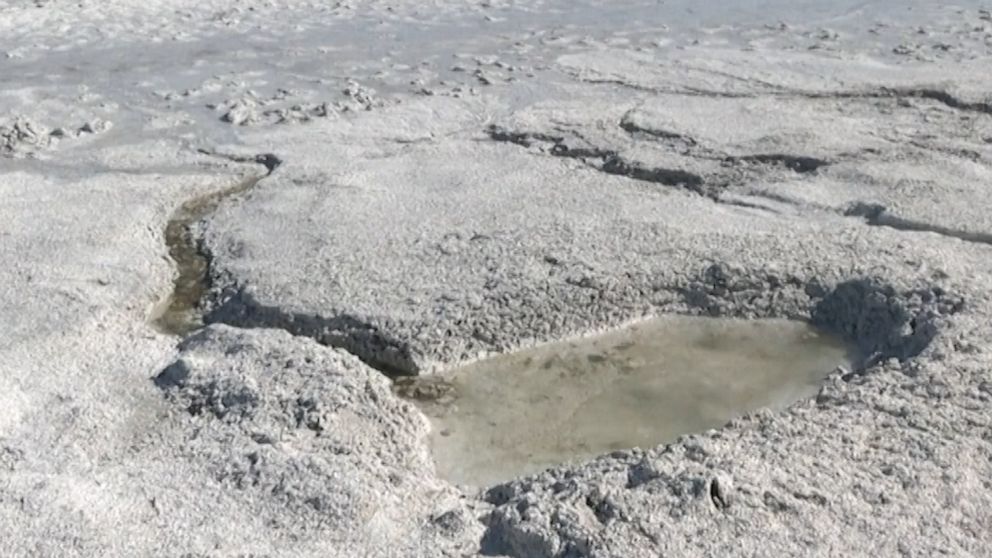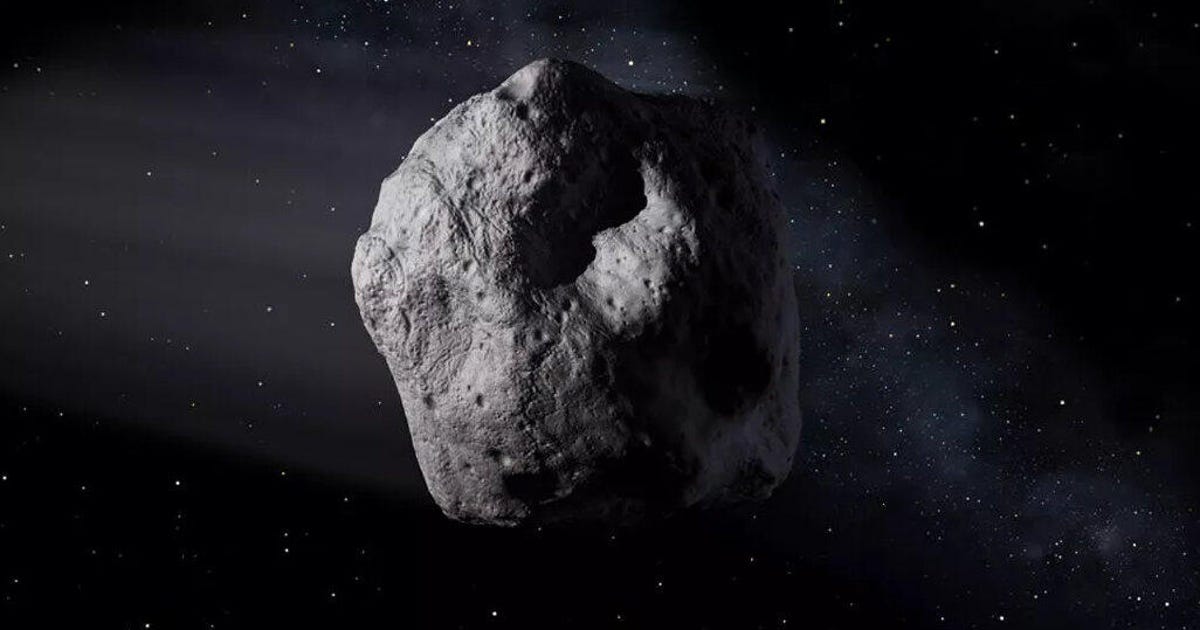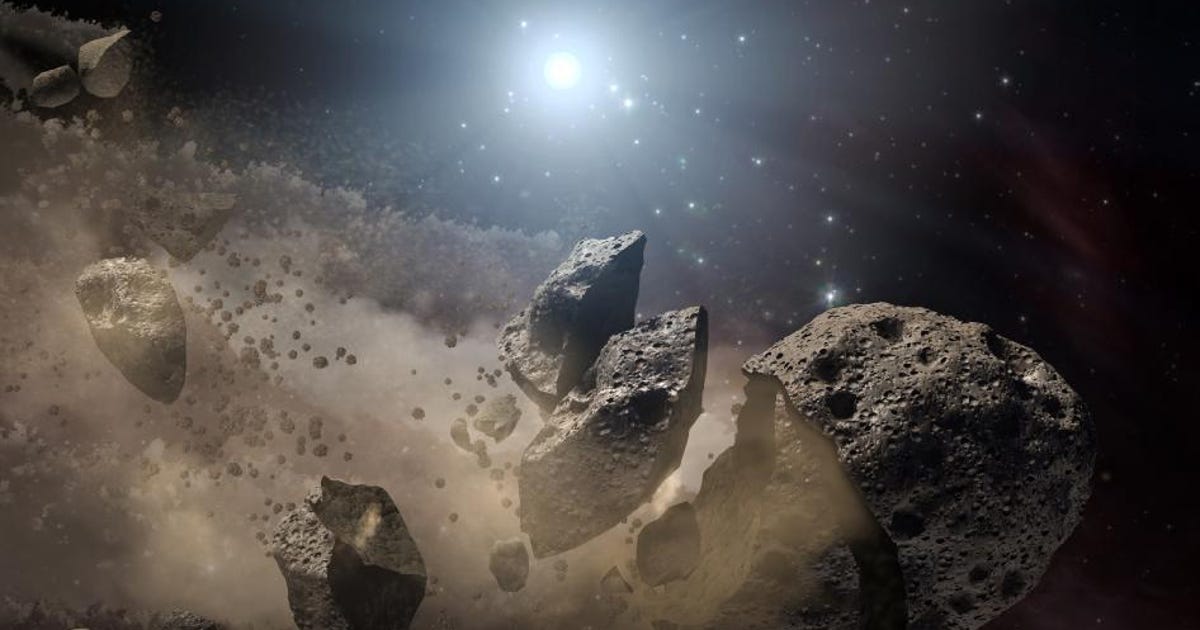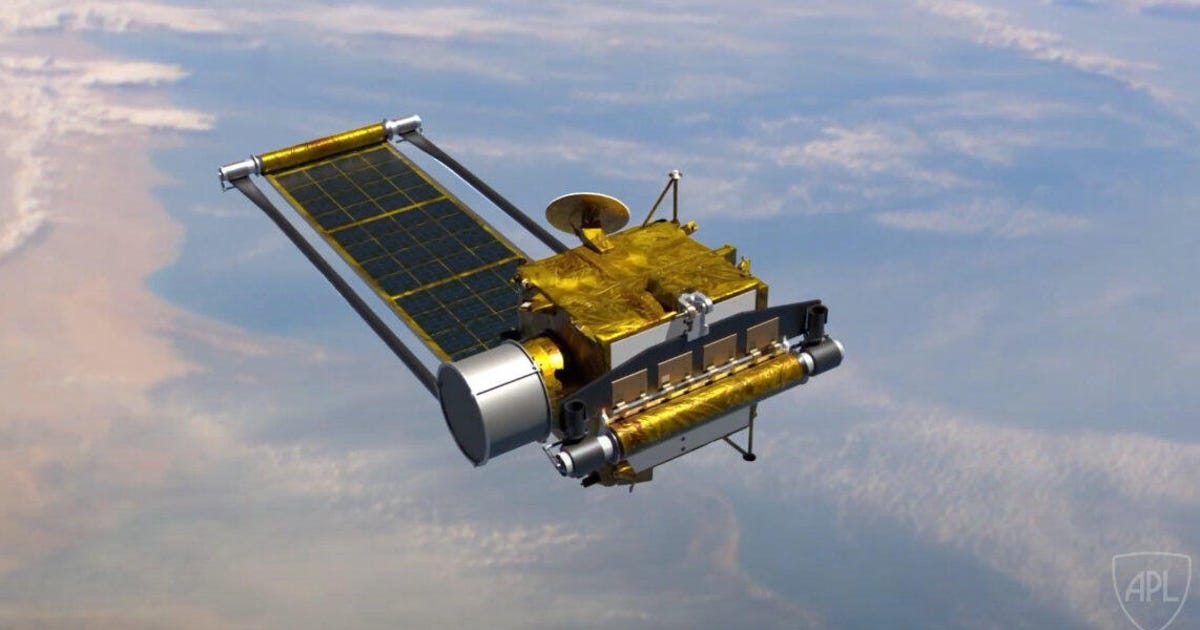
CAPE CANAVERAL, Fla. -- Whew, now here's some good cosmic news: NASA has given Earth the all clear for the next century from a particularly menacing asteroid.
The space agency announced this week that new telescope observations have ruled out any chance of Apophis smacking Earth in 2068.
That's the same 1,100-foot (340-meter) space rock that was supposed to come frighteningly close in 2029 and again in 2036. NASA ruled out any chance of a strike during those two close approaches a while ago. But a potential 2068 collision still loomed.
Not to change the topic here:
Asteroid named after former Latino astronaut José Hernández

"NASA called me asking me permission to name a particular asteroid after me. 'Of course, I don't mind, just make sure it's not one that's heading towards Earth. Cause I don't want people to get mad at me if it's one of those doomsday asteroids,'" says Hernández jokingly about the phone call he received from NASA.
Now, asteroid 122554 will be adding diversity in the main asteroid belt between Mars and Jupiter.
It's a dream that the former astronaut says he could have never imagined as a child farmworker, just like he couldn't have imagined launching his own wine.
Huge asteroid 2021 EQ3 zoomed safely past Earth - CNET

A particularly big asteroid passed by Earth particularly close on March 15. The flyby was completely safe and didn't pose any risk to anything or anyone on Earth, or to any of our satellites. But asteroid 2021 EQ3 came closer to Earth than our lone natural satellite.
Sky surveys and other telescopes spot a space rock passing closer than the moon every few days, on average. Most of these asteroids are just a few meters across, likely making them no larger than a bus.
Space-launched missiles are the best protection from asteroids, astronomer says - CNET

"A sufficient number of missiles could thus be launched in a sequence from the Earth-Moon Lagrangian points L1 and L3 with the result that the SUM of all these small and repeated deflections will finally throw the NEO off its collision hyperbola with the Earth," Maccone writes.
Maccone has applied for a patent for the software that models such space-fired missile deflections, but he notes that there's still more work to be done:
"Many engineering details about the missiles shot from L1 and L3, however, still have to be implemented into our simulations, partly because they are classified."
This may worth something:
A massive asteroid is set to fly close to Earth – here's how to watch | Dazed

Earlier this year, NASA announced that a massive asteroid is set to have a close encounter with Earth, passing within two million kilometers (in space terms, that's closer than it sounds, earning it the title of Potentially Hazardous Asteroid). Moving at just under 77,000 miles per hour, and estimated to measure around a kilometre in diameter, Asteroid 2001 FO32 will be the largest and fastest of its kind to pass so close to our planet this year.
Last month, a professor of astrophysics at Queen's University Belfast, Alan Fitzsimmons, told Dazed that if an asteroid that size were to make impact with the planet's surface, it could result in mass devastation and worldwide climatic effects. Luckily, we don't have anything to worry about just yet, since astronomers' observations have shown that it isn't on track to hit us for at least 200 years.
27 asteroids named in honor of pioneering NASA astronauts

Former astronaut José Hernández working controls on the flight deck of space shuttle Discovery while docked with the International Space Station on Aug. 31, 2009.
NASA is honoring 27 astronauts and their trailblazing contributions by naming asteroids after each of them.
* * *
✨ Located in the asteroid belt between Mars and Jupiter, twenty-seven asteroids have been named in honor of 27 pioneers of space exploration by Marc W. Buie, the discovering astronomer. View the diverse group of honorees: https://t.co/VuInhBz7V6 pic.twitter.com/c6Kfr841qK
See how NASA is going to bludgeon an asteroid - CNET

The APL video is done in the style of a teaser trailer complete with a soaring soundtrack. It shows key parts of the mission, including the launch, the unrolling of the spacecraft's solar panels and the release of a small CubeSat that will witness the bigger spacecraft's sacrifice as it plows into Dimorphos.
If DART gets off the ground within that time frame, it should be on track to smack the moonlet in late 2022.
Asteroid the size of 3 football fields to pass by Earth tonight | RochesterFirst
Astronomers are watching asteroid #Apophis this week for its close sweep past Earth on March 5-6. It sparked excitement in 2004 when early observations suggested it might strike Earth in 2029. See it online and read more: https://t.co/8ryNmMra6I
📸 NASA pic.twitter.com/XjxvYuoVuo
The asteroid will be approximately 10.4 million miles away as it harmlessly passes by Earth. Apophis will be nearly 44 times as far away as the moon.
* * *
Since Apophis is reportedly within range of earthly telescopes and radar, astronomers will be tracking its movement.
Happening on Twitter
NASA gives all clear: Earth safe from asteroid for 100 years https://t.co/HiahDMhgOQ FOX40 (from Sacramento, CA) Fri Mar 26 19:50:57 +0000 2021
NASA gives Earth the all clear for the next century from a particularly menacing asteroid that will fly by the plan… https://t.co/upGFuCAol1 KTLA (from Los Angeles, CA) Fri Mar 26 18:40:35 +0000 2021
Friday bad news dump. "NASA gives all clear: Earth safe from asteroid for 100 years" https://t.co/TvJoNVI0zc pourmecoffee Fri Mar 26 23:13:17 +0000 2021
Phew! NASA gives the all-clear: Earth safe from asteroid for 100 years https://t.co/PduSHOBmo9 https://t.co/bRsE7JXt3W 1010WINS (from NYC) Fri Mar 26 21:12:16 +0000 2021
No comments:
Post a Comment